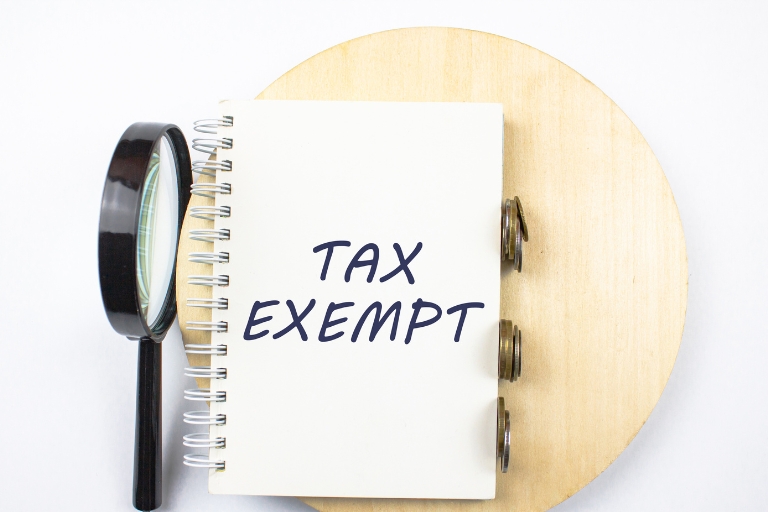Welcome, dear reader, to the thrilling world of tax planning! Yes, you heard it right, thrilling! Taxes might not be as exciting as a roller coaster ride, but with a little bit of humor and a lot of knowledge, we can make this journey as fun as possible. So buckle up, and let’s dive into the exhilarating world of tax exemptions!
Before we start, let’s clarify what we mean by ‘exemptions’. In the tax world, an exemption is like a get-out-of-jail-free card. It’s a portion of your income that the taxman can’t touch. Not because he’s allergic to it, but because the law says so. Now, isn’t that a relief?
The Basics of Tax Exemptions
Let’s start with the basics. Think of tax exemptions as your protective shield against the fiery dragon of taxes. These are specific amounts set by law that reduce the amount of income you have to pay taxes on. It’s like having a secret weapon in a video game, but instead of defeating monsters, you’re reducing your taxable income.
Exemptions can come in different forms, like personal exemptions, dependency exemptions, and exemptions for the elderly or blind. It’s like a buffet of tax-saving options. But remember, with great power comes great responsibility. So, use your exemptions wisely!
Personal Exemptions
Personal exemptions are like your personal bodyguards in the tax world. They protect a portion of your income from being taxed. Unfortunately, for federal taxes, personal exemptions have been suspended from 2018 to 2025. But don’t worry, they might make a comeback in 2026. So, keep your fingers crossed!
However, some states still allow personal exemptions. So, if you live in one of those states, congratulations! You’ve just won the tax lottery. But remember, the rules can vary from state to state, so make sure to check your state’s tax laws.
Dependency Exemptions
Dependency exemptions are like bonus points for having dependents. If you have a dependent, like a child or a relative who relies on you for financial support, you might qualify for a dependency exemption. It’s like getting a reward for being a good Samaritan. But remember, there are specific rules and tests to determine who qualifies as a dependent. So, make sure to do your homework!
Unfortunately, just like personal exemptions, dependency exemptions have also been suspended for federal taxes from 2018 to 2025. But again, some states still allow them. So, if you live in one of those states, it’s time to celebrate!
Exemptions for the Elderly and Blind
Exemptions for the elderly and blind are like special gifts for those who are 65 or older or blind. If you qualify, you can reduce your taxable income even further. It’s like getting a senior discount, but for taxes. But remember, there are specific rules to qualify for these exemptions. So, don’t forget to check the fine print!
Again, these exemptions have been suspended for federal taxes from 2018 to 2025. But some states still allow them. So, if you qualify, it’s time to do a happy dance!
Qualifying for the Elderly Exemption
To qualify for the elderly exemption, you must be 65 or older by the end of the tax year. It’s like a birthday gift from the taxman. But remember, age is just a number, especially when it comes to taxes!
Also, your gross income must be below a certain limit. So, if you’re rolling in dough, you might not qualify. But hey, at least you’re rolling in dough, right?
Qualifying for the Blind Exemption
To qualify for the blind exemption, you must be legally blind by the end of the tax year. It’s like the taxman is saying, “I see you, and I’ve got your back.” But remember, you’ll need to provide proof of your blindness. So, no trying to pull a fast one on the taxman!
Again, your gross income must be below a certain limit to qualify. So, if you’re seeing green, you might not qualify. But hey, at least you’re seeing green, right?
Tax Planning and Exemptions
Now that we’ve covered the basics of exemptions, let’s talk about tax planning. Tax planning is like playing a strategic game of chess with the taxman. Your goal is to make the right moves to minimize your tax liability. And exemptions are one of the pieces you can move on the chessboard.

By understanding how exemptions work, you can plan your taxes more effectively. It’s like having a roadmap to navigate the complex maze of taxes. But remember, tax planning is not a one-size-fits-all solution. What works for one person might not work for another. So, make sure to tailor your tax plan to your specific situation.
Strategies for Maximizing Exemptions
There are several strategies you can use to maximize your exemptions. For example, you can claim as many dependents as you legally can. It’s like collecting bonus points in a game. The more dependents you have, the more exemptions you can claim.
Another strategy is to take advantage of the exemptions for the elderly and blind if you qualify. It’s like using a power-up in a video game. But remember, these strategies should be part of a larger tax plan. So, make sure to consider all aspects of your financial situation.
Common Mistakes to Avoid
When it comes to exemptions, there are some common mistakes to avoid. One of the biggest mistakes is not claiming all the exemptions you’re entitled to. It’s like leaving money on the table. So, make sure to claim all your exemptions!
Another common mistake is not understanding the rules for qualifying dependents. Remember, there are specific tests to determine who qualifies as a dependent. So, make sure to understand these rules to avoid any nasty surprises at tax time.
Conclusion
And there you have it, folks! A comprehensive, and hopefully hilarious, guide to exemptions in tax planning. Remember, exemptions are your friends in the tax world. They can help you reduce your taxable income and save money on taxes. So, make sure to use them wisely!
But remember, tax planning is a complex process that requires a thorough understanding of tax laws and regulations. So, if you’re feeling overwhelmed, don’t hesitate to seek professional help. After all, even superheroes need a sidekick sometimes!


